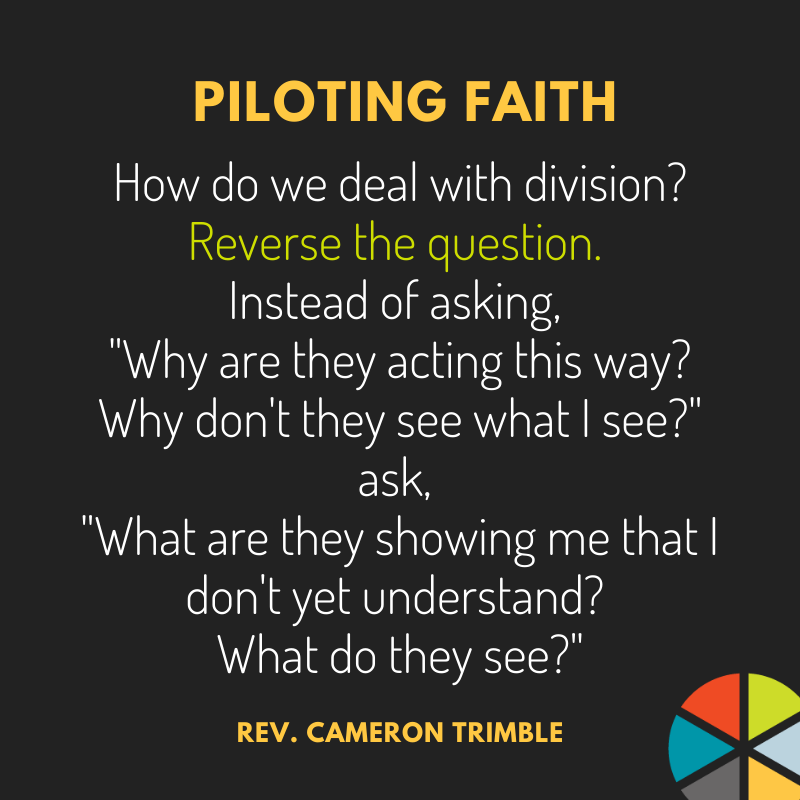I find this hard to believe, but this (almost) daily meditation now reaches thousands of people across the world. Each day many of you write to me with wonderful questions, observations, and stories from your own lives. I read each note you send, but I am rarely able to respond directly. That disappoints me because you are gifting me/us with wonderful insights for further inquiry.
Here is what I would like to do: You keep writing, and I will take the questions that you offer and respond to those I can publicly here. I will rewrite them so that your identity stays anonymous. But perhaps our dialogue can help us all.
One reader in our community writes: I love your inspirational emails! There is one part of this one that troubles me, though. I am very concerned about the 74 million Americans who voted for Trump. They have not said they will stop sewing division. I don’t doubt that most citizens of this country value the same basic things — being able to make a living and support your family, being able to create a life with opportunities for your children, being safe and healthy as much as possible. And maybe, living in a community that is respectful, if not supportive and loving. How do we reach across the divide to affirm those values even if we see different ways of assuring them?
What a great question to be asking! Here is where we might start: Reverse the underlying question. Instead of asking, “Why are they acting this way? Why don’t they see what I see?” reverse the question by asking, “What are they saying/showing me that I don’t yet understand? What do they see?”
Now, we may completely disagree with what they see. In fact, we likely will. But until we ask the question and open ourselves to seeing through their eyes – seeing as if through our own eyes – then we won’t see the way back into community and relationship. We will never push ourselves past dualistic thinking.
It’s a tragic trait of human nature to “other” our enemies. In the face of conflict and division, we create teams – “Us” vs. “Them.” We create stories that redeem “us” and condemn “them.” But it’s the very practice we must undo if we are to find a sustainable, compassionate way forward for us all.
I can best illustrate this with a story:
When COVID hit the US, and we went into lockdown, my wife and I decided to move to a home in the country…in Wedowee, Alabama. It feels like one hundred percent of our neighbors were (and remain) Trump supporters. Many are “anti-maskers.” During a visit to the grocery store on January 6, I witnessed the men dressed in camouflage in the store walking through the aisles with their phones blasting “God Bless the USA” while the riots were happening in Washington DC. I was wearing my “Black Lives Matter” t-shirt. Looking back, I didn’t realize the boldness of the statement I was making on that particular day.
But when you are in the country, neighbors matter. We pull each other out of ditches…literally. So, when I moved to the country, I carried a “Trump-Supporter” label in my head that I readily applied to almost everyone I met. It was a label filled with assumptions about who they were and what they believed. The label was not without evidence and not always wrong. But it was wrong just enough that I began to see my mistake. I had “othered” them.
Here is what I came to realize: My refusal to see them, to see life through their eyes – in my case because what I saw deeply angered me – prevented me from authentic relationship. It allowed me to feel superior. It justified my righteous indignation. More than that, it created an illusion of distance between us, blinding me to this one essential truth: for good or ill, we are all connected. We are all One.
Some of my neighbors are racist…and so am I. Some of my neighbors are biased…and so am I. Some of my neighbors are angry, sad and afraid…and some days, so am I. I simply feel better about myself and feel free to judge them because I know I am working on becoming a better person. I don’t want to see the evidence that perhaps they are doing the same.
Let me close with one strong, clear word: Just because we come to understand and see another person does not mean that we excuse bad behavior or allow abusive patterns to continue. But seeing another allows for a certain compassion – for them and you – that makes addressing that behavior redemptive rather than simply punitive.
Thank you for this question, dear reader. You taught me a great deal by asking it.
We are in this together,

Rev. Cameron Trimble
Author of Piloting Church: Helping Your Congregation Take Flight
